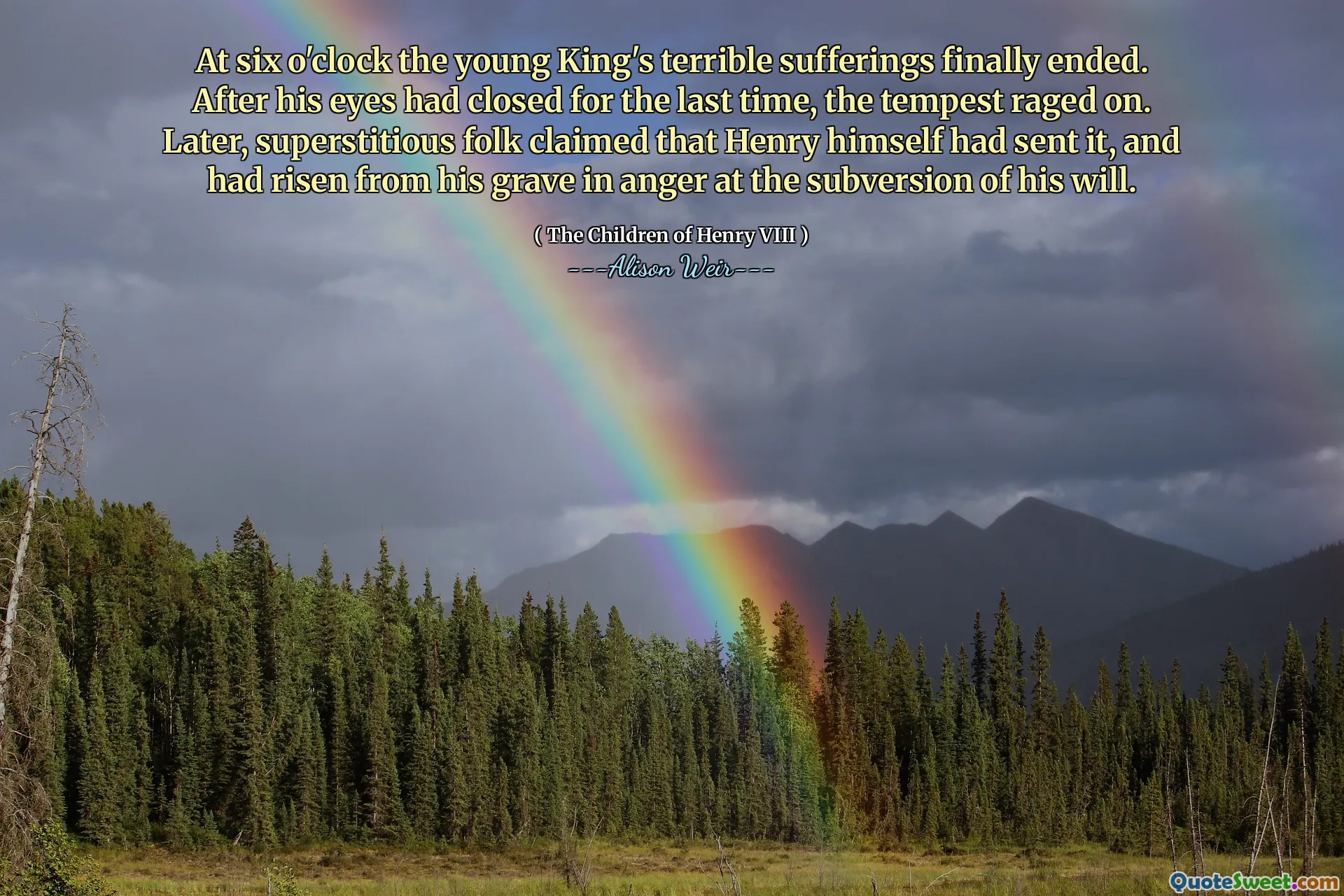
At six o'clock the young King's terrible sufferings finally ended. After his eyes had closed for the last time, the tempest raged on. Later, superstitious folk claimed that Henry himself had sent it, and had risen from his grave in anger at the subversion of his will.
[Markdown format] This quote presents a vivid and intense depiction of a pivotal moment, likely the death of a young king, interwoven with the superstitions and beliefs that persisted during turbulent times. The imagery of the 'terrible sufferings' ending at a specific time evokes a sense of finality and relief, yet it also hints at the tragic burdens borne by this young ruler. The storm that continues afterward symbolizes unresolved chaos, emotional tumult, or the lingering unrest following death. The mention of superstitious folk attributing the storm to Henry himself demonstrates the deep-seated anxieties and reverence—or fear—that surrounded his memory, suggesting that his influence extended even beyond death. The idea of Henry rising from the grave in anger over the subversion of his will introduces themes of justice, power, and supernatural retribution, illustrating how legends and beliefs shape historical narratives. On a broader level, this quote captures the human tendency to seek explanations for unexplained phenomena through superstition, especially when dealing with events of significant societal impact like the death of a ruler. It reflects the cultural mindset of the era, where the line between the natural and supernatural was permeable in public consciousness. Ultimately, it encapsulates how history is often intertwined with myth, where the line between reality and legend becomes blurred, adding layers of meaning that influence the collective memory of historical figures and events.
(My reflections are based on the context provided by "The Children of Henry VIII" by Alison Weir, which explores the tumultuous history and legacy of Henry VIII, and fits into the broader narrative of monarchy, power, and superstition in historical England.)






